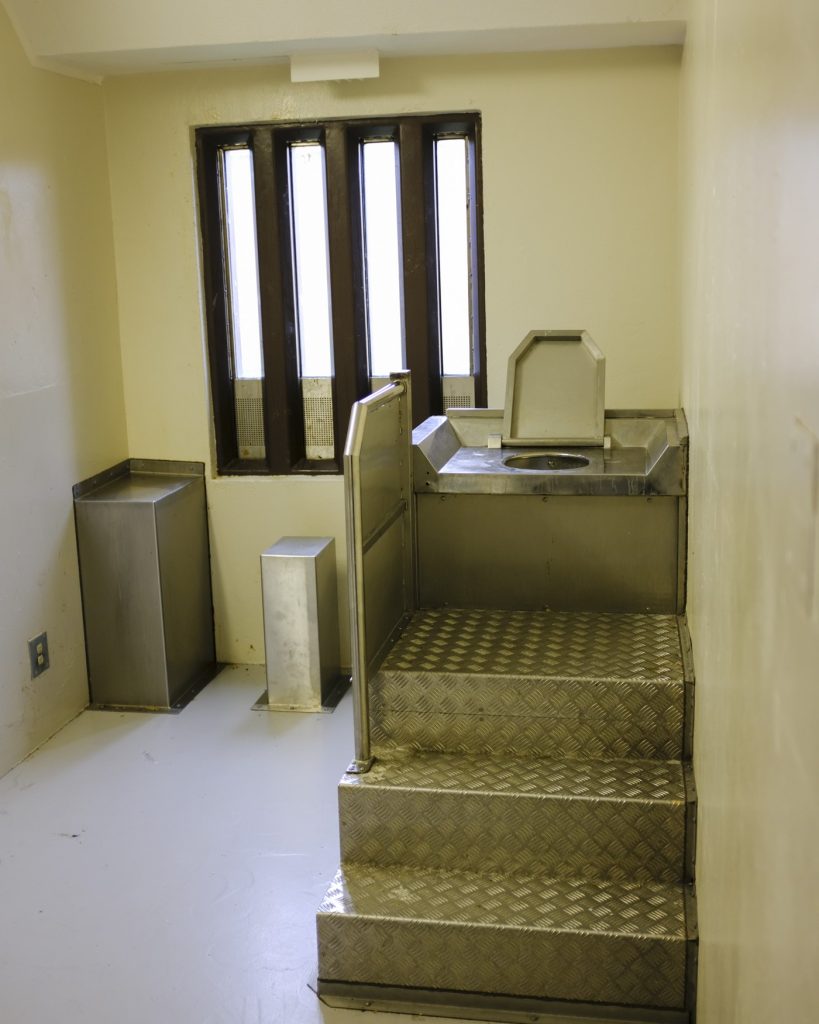Bathing as a Post-Conflict Reintegration Practice Healing Waters

Bathing: A Ritual of Healing in Post-Conflict Environments
The aftermath of conflict transcends visible destruction, creating ripples that affect emotional and communal stability. In Nigeria, where ethnic tensions and insurgencies have disrupted lives and communities, post-conflict reintegration becomes immensely important. One aspect of this process that holds particular significance is the ritual of bathing, which symbolizes far more than mere physical cleanliness; it represents a pathway to healing and reconnecting with one’s cultural roots.
The Benefits of Bathing in Reintegration
Bathing as a therapeutic practice allows individuals to engage in physical, emotional, and cultural rejuvenation. This multifaceted practice holds notable benefits:
- Physical Cleansing: Bathing not only removes dirt but also symbolizes the cleansing of traumatic experiences. This physical act can help alleviate the psychological burden that many carry post-conflict. For example, traditional Yoruba bath rituals incorporate herbs known for their cleansing properties, signaling the washing away of both physical dirt and spiritual impurities.
- Emotional Release: The simple act of immersing oneself in water can provide a profound emotional release. Many find solace in the quiet moments spent in water, a chance to reflect and process their experiences. This can be particularly healing for individuals who have faced violence, as the bath becomes a sanctuary for letting go of past pain and embracing new beginnings.
- Cultural Significance: In many Nigerian communities, bathing rituals are laden with cultural significance. For instance, among the Igbo, the use of specific plants in bathwater can evoke ancestral connections, reinforcing identity and community bonds. Engaging in these time-honored practices fosters a renewed sense of belonging and identity, essential for those recovering from the alienation wrought by conflict.
The Ripple Effect on Communities
While the practice of bathing holds individual significance, its impact extends to the community level. As individuals reintegrate and recover, their experiences contribute to communal healing. Collective bathing events, often held during festivals or communal gatherings, serve as vital opportunities for social cohesion. These activities not only restore interpersonal connections but also foster a collective identity strengthened through shared experiences.
Additionally, examining the cultural context around bathing reveals deeper meanings that resonate within communities. The healing waters not only cleanse but also symbolize hope. In communities where conflict has fractiously divided families, coming together for collective bathing can bridge these gaps, encouraging dialogue and mutual understanding.
Invitation to Explore
The exploration of bathing as a ritual in post-conflict societies unveils a complex fabric of healing that extends far beyond the physical. As we uncover the stories surrounding this vital practice, we invite you, the reader, to consider how something as simple as bathing can become a beacon of hope and a powerful means of restoration for those emerging from the shadows of conflict. The journey towards healing is indeed a collective endeavor, rooted in the rituals that bind communities together through shared cultural values.

SEE ALSO: Click here to read another article
Bathing as a Symbolic Act of Renewal
In many cultures, the act of bathing transcends mere hygiene; it embodies a profound ritual of renewal. In the context of post-conflict Nigeria, this practice takes on additional layers of meaning as it intersects with efforts toward social reintegration and healing. Bathing, deeply rooted in traditional customs, acts as a transformative ritual that facilitates recovery from the traumas inflicted by conflict.
The psychological benefits of bathing are deeply tied to its symbolic nature. For individuals who have experienced the emotional toll of violence and displacement, the act of cleansing oneself is not only physically restorative but also psychologically significant. It provides an opportunity to metaphorically wash away the scars of war. As one participant in a community reintegration program noted, “When I step into the water, I feel like I am leaving my past behind.” Such reflections underscore the power of healing waters in helping individuals navigate their complex emotional landscapes.
Communal Bathing: Strengthening Social Ties
Beyond individual benefits, communal bathing rituals play a crucial role in strengthening social bonds within communities. These collective practices allow individuals to reconnect and rebuild relationships that may have been fractured by conflict. For instance, in many Nigerian communities, the concept of communal washing—where groups of people gather to bathe together—serves as an avenue for social engagement and solidarity. This is particularly prevalent in cultural events, such as festivals or traditional ceremonies, where bathing signifies not only personal renewal but also community strength.
- Reinforcing Community Identity: Through shared bathing rituals, members of the community are reminded of their shared history and cultural narratives. For example, the Maasai in Nigeria often participate in group bathing as part of celebration rituals, enhancing their communal identity.
- Encouraging Dialogue: Commune bathing experiences serve as informal platforms for discussion. Here, people can express their feelings, memories, and thoughts about the past, which is crucial in building trust and facilitating reconciliation.
- Creating Safe Spaces: The act of coming together for bathing cultivates a safe environment where individuals can voice their stories without fear of judgment. This shared vulnerability is essential in nurturing empathy and understanding among community members.
In essence, communal bathing practices do not merely cleanse the body; they foster emotional release and cultural reconnections that can significantly expedite the healing process. By immersing themselves in a collective ritual, community members often find solace and reassurance, reminding them of their shared resilience in the face of adversity.
Conclusion of the Journey Towards Healing
As we delve deeper into understanding bathing as a vital practice in post-conflict reintegration, we uncover its potential not just as a ritual for personal cleansing, but as a movement towards communal healing. The healing waters of Nigeria are more than an act of physical renewal; they are symbolic anchors of hope, unity, and the promise of a reconciled future. Through these connections, bathing emerges as a powerful practice for both individuals seeking solace and communities striving for restoration in the wake of conflict.
| Aspect | Significance |
|---|---|
| Cultural Reconnection | Bathing rituals serve to reconnect individuals with their cultural roots, fostering a sense of identity and belonging. |
| Emotional Healing | The act of bathing promotes mental wellness, providing a therapeutic outlet for individuals processing trauma from conflict. |
| Community Engagement | Participation in group bathing activities encourages community bonding and support, crucial for reintegration. |
| Symbol of Renewal | Bathing symbolizes a fresh start, providing participants with hope and motivation for a new chapter in their lives. |
In many regions affected by conflict, traditional bathing practices have emerged as a vital method of healing and reintegration. The process not only aids in physical cleansing but also plays a significant role in psychological and social rejuvenation. For instance, communal bathing rituals empower individuals to come together, share experiences, and foster empathy, crucial for rebuilding trust and social fabric post-conflict.Moreover, bathing often incorporates historical narratives and ancestral knowledge, making it an intuitive choice for individuals seeking to reclaim identity after a period of uncertainty. Various studies have shown that such practices can diminish feelings of isolation, allowing participants to engage in conversations that aid emotional processing.The transformation experienced during these practices can lead to profound changes in outlook and self-esteem, enabling those affected by conflict to envision a hopeful future. As they navigate the waters of healing, the importance of **community** and **identity** cannot be overstated, reshaping the landscape of post-conflict recovery. Healing Waters thus serves not just as a practice, but as a **bridge** to a more stable and fulfilling existence.
CHECK OUT: Click here to explore more
Therapeutic Practices: The Healing Properties of Water
The physical properties of water itself play a significant role in the therapeutic aspects of bathing. In many Nigerian communities, water is often perceived to possess healing properties. This belief is intertwined with local traditions and spiritual practices, creating an atmosphere of reverence for natural water sources. For instance, rivers and lakes are frequently regarded as sacred spaces where one can engage in cleansing rituals that offer not just physical cleanliness but emotional and spiritual purification as well.
Studies have shown that water has a calming effect on the mind, which is vital for individuals recovering from the traumas of conflict. The rhythmic sounds of flowing water, the texture of water droplets, and the fluctuating temperatures of a bath can create a sensory experience that instills a sense of peace. One participant explained, “When I immerse myself in the river, I can feel my worries wash away. It’s as if the water embraces me and takes my pain with it.” Such sentiments highlight how water’s sensory qualities can serve as a natural remedy for anxiety and stress, paving the way for a more profound healing journey.
Cultural Context: Integrating Traditional and Modern Practices
In post-conflict environments, the integration of traditional bathing practices with modern therapeutic approaches has emerged as a key strategy in promoting mental well-being. For instance, some community health initiatives in Nigeria have started offering programs that combine traditional bathing rituals with counseling sessions. This method enhances the therapeutic experience by encouraging individuals to share narratives related to their trauma while engaging in the restorative act of bathing.
Moreover, the infusion of local herbs and natural remedies into bathing rituals is a practice deeply rooted in Nigerian culture. Many individuals continue to use indigenous plants known for their soothing properties, such as neem and bitter leaves, in their bathing routines. The benefits of these plants are well-documented; they are said to assist in reducing stress and promoting mental clarity. Such practices not only fortify the connection to cultural heritage but also empower individuals to take an active role in their healing journey.
- Community Workshops: Initiatives that educate community members on the benefits of herbal baths and the integration of traditional wisdom in healing have sprung up. Workshops focusing on holistic health promote a shared understanding of how bathing can be used as a tool for recovery.
- Art Therapy: Many communities have begun to combine bathing rituals with art therapy, allowing individuals to express their emotions through creative outlets while bathing. This dual approach nurtures both physical and emotional healing, reinforcing the idea that personal reconstruction is an active process.
- Mindfulness Practices: Incorporating mindfulness techniques during bathing encourages individuals to be present and reflective, allowing the experience to become a meditative act that fosters emotional resilience.
These integrated approaches not only address the individual’s need for healing but also position bathing as a comprehensive practice that encompasses physical, emotional, and social wellness. The community’s engagement in these blended practices marks a shift towards a holistic model of care, emphasizing the vital role of cultural identity in the healing process.
SEE ALSO: Click here to read another article
Conclusion: The Transformative Power of Healing Waters
As we have explored, bathing as a post-conflict reintegration practice evokes a powerful interplay between physical, emotional, and spiritual healing. The water’s innate therapeutic properties serve not only to cleanse the body but also to wash away the burdens of trauma that linger in the hearts of many who have experienced conflict. For countless individuals in Nigerian communities, water is perceived as a sacred element that carries with it the ability to facilitate profound personal transformation.
The integration of traditional and modern practices underscores a holistic approach to healing. By merging ancestral bathing rituals with contemporary therapeutic methods, communities are not only networking a diverse repertoire of healing options but are also fostering a sense of cultural continuity amidst adversity. As illustrated through community workshops and art therapy, these initiatives amplify the sense of belonging and shared identity, vital for individual recovery.
Ultimately, recognizing the significance of cultural identity in healing processes can further enhance the effectiveness of these practices. The soothing embrace of water, curated by time-honored traditions and modern insights, invites individuals to embark on a journey of reconstruction and resilience. For someone grappling with the aftermath of conflict, the act of bathing transcends mere hygiene—it becomes a ritual of revival, an intimate encounter with serenity amidst chaos. By embracing the healing waters, we unlock pathways toward recovery, underscoring the timeless wisdom that from the depths of pain, new life can emerge.


